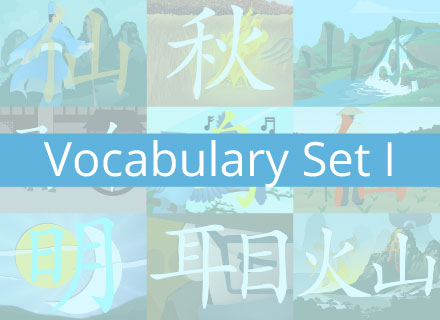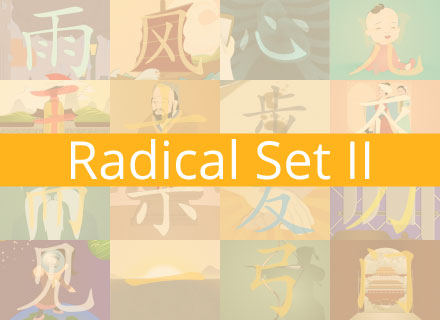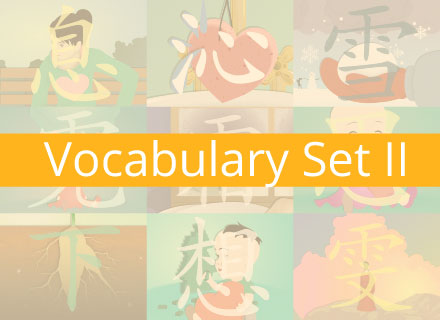愁 Chóu 
愁 is a phono-semantic compound written with the 心 (xīn) "heart" radical on the bottom and the phonetic component 秋 (qiū) "autumn" on top. 愁 means "anxiety" or "to worry" and is found in words which convey anxiety or worry such as 愁苦 (Chóu Kǔ) "sorrow", 愁烦 (chóu fán) "grieved", 愁郁 (chóu yù) "depressed", and 愁绪 (chóu xù) "melancholy".
After a bountiful and green Spring and Summer, Fall starts the end of harvest when farmers often burn the grain fields to destroy locust eggs. The heart becomes weary and heavy with concern for next year's crop. This cycle is visually captured in the character 愁.
The Chinese idiom 愁肠寸断 (Chóu Cháng Cùn Duàn) "sorrow so deep that it cuts the bowels to pieces", describes an intolerably painful sadness and is similar to the English metaphor of a "broken heart".
- Category: Phono-Semantic Compound
- Component Characters: 秋 Qiū | "Fall" and 心 Xīn | "Heart"










